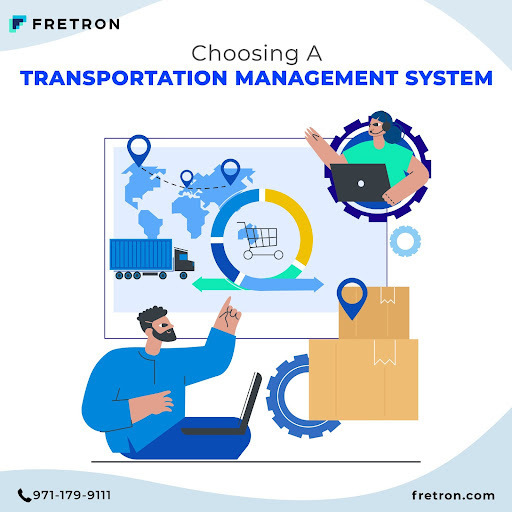Logistics Management in Retail Industry
811
0
·
2023/09/18
·
2 mins read
☕
WriterShelf™ is a unique multiple pen name blogging and forum platform. Protect relationships and your privacy. Take your writing in new directions. ** Join WriterShelf**
WriterShelf™ is an open writing platform. The views, information and opinions in this article are those of the author.
Article info
Categories:
⟩
⟩
Tags:
Total: 439 words
Like
or Dislike
More from this author
More to explore










In the fast-paced world of retail, where customer expectations are constantly evolving, logistics management plays a pivotal role in ensuring the seamless flow of goods from manufacturers to consumers. Efficient logistics management is not merely a competitive advantage; it's necessary for survival in today's retail industry. This blog explores the significance of the retail logistics management sector and how it can make or break a retailer's success.
Customer-Centric Approach
The modern retail landscape is marked by consumers who demand convenience, speed, and choice. This places immense pressure on retailers to have products readily available, whether in-store or online. Effective logistics management ensures that the right products are in the right place at the right time, enabling retailers to meet customer demands and preferences efficiently. This can result in increased customer satisfaction and loyalty.
Inventory Optimization
Inventory management is a critical aspect of logistics in the retail industry. Retailers need to strike a delicate balance between having enough stock to meet demand without overstocking, which can lead to excess carrying costs and potential losses. Sophisticated logistics systems and software help retailers forecast demand accurately, allowing them to optimize their inventory levels and reduce holding costs.
Cost Efficiency
Logistics management is closely tied to cost efficiency. By streamlining supply chain processes, retailers can minimize transportation costs, reduce warehousing expenses, and enhance overall cost-effectiveness. This, in turn, can lead to higher profit margins or competitive pricing for consumers, which is a key driver of success in the retail industry.
E-commerce Integration
The rise of e-commerce has revolutionized the retail industry, and logistics management is at the heart of this transformation. Retailers must seamlessly integrate their online and physical operations, ensuring a unified customer experience. This involves efficient order processing, inventory synchronization, and last-mile delivery solutions to meet the expectations of online shoppers.
Sustainability and Environmental Considerations
In today's environmentally conscious world, logistics management in the retail sector also includes a focus on sustainability. Retailers are increasingly adopting eco-friendly transportation options, optimizing routes to reduce emissions, and exploring sustainable packaging solutions. These initiatives not only reduce the environmental footprint but also resonate with environmentally conscious consumers.
Conclusion
Logistics management is the backbone of the retail industry. Its role extends far beyond the simple movement of goods; it encompasses everything from meeting customer expectations and optimizing inventory to controlling costs, integrating e-commerce, and promoting sustainability. In an industry where success hinges on meeting rapidly changing consumer demands, effective logistics management is not just a competitive advantage but a necessity for survival. Those retailers who embrace and excel in this crucial aspect of their operations are poised to thrive in the dynamic world of retail.